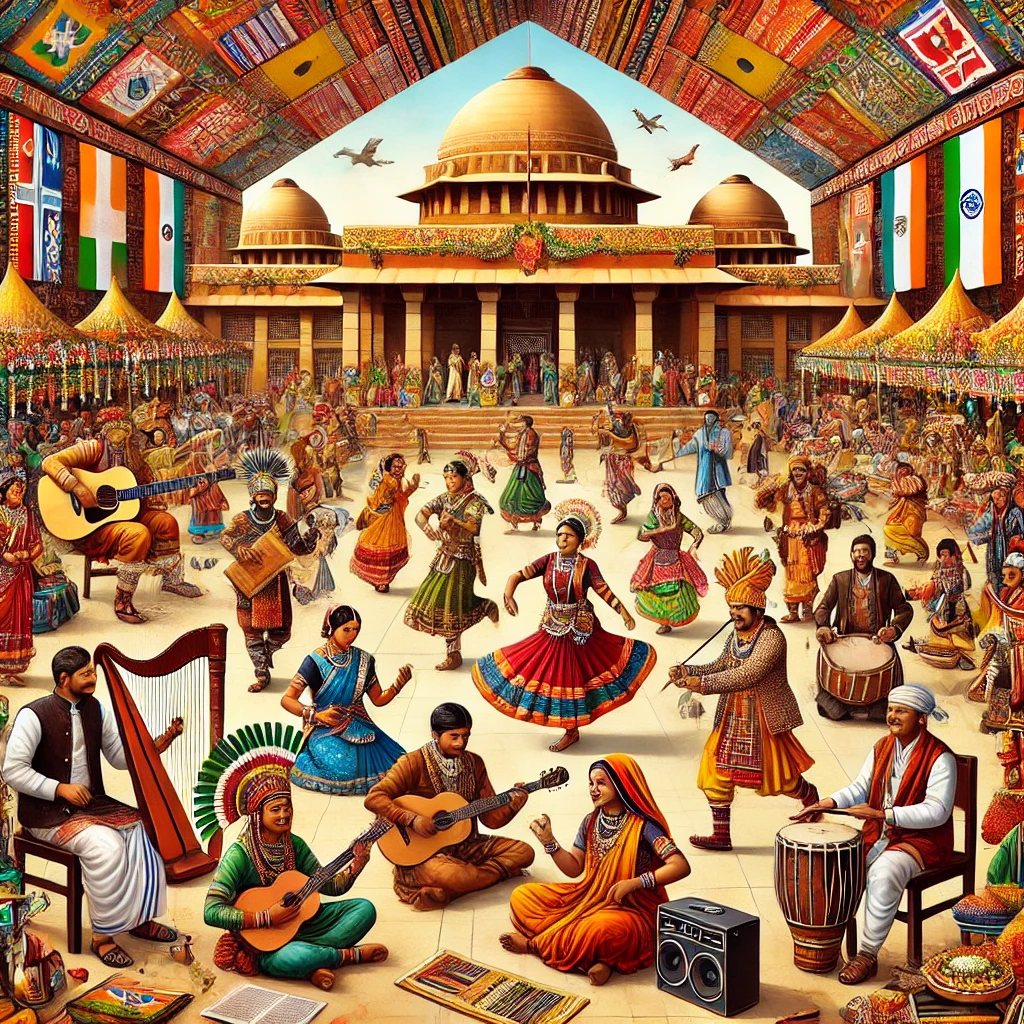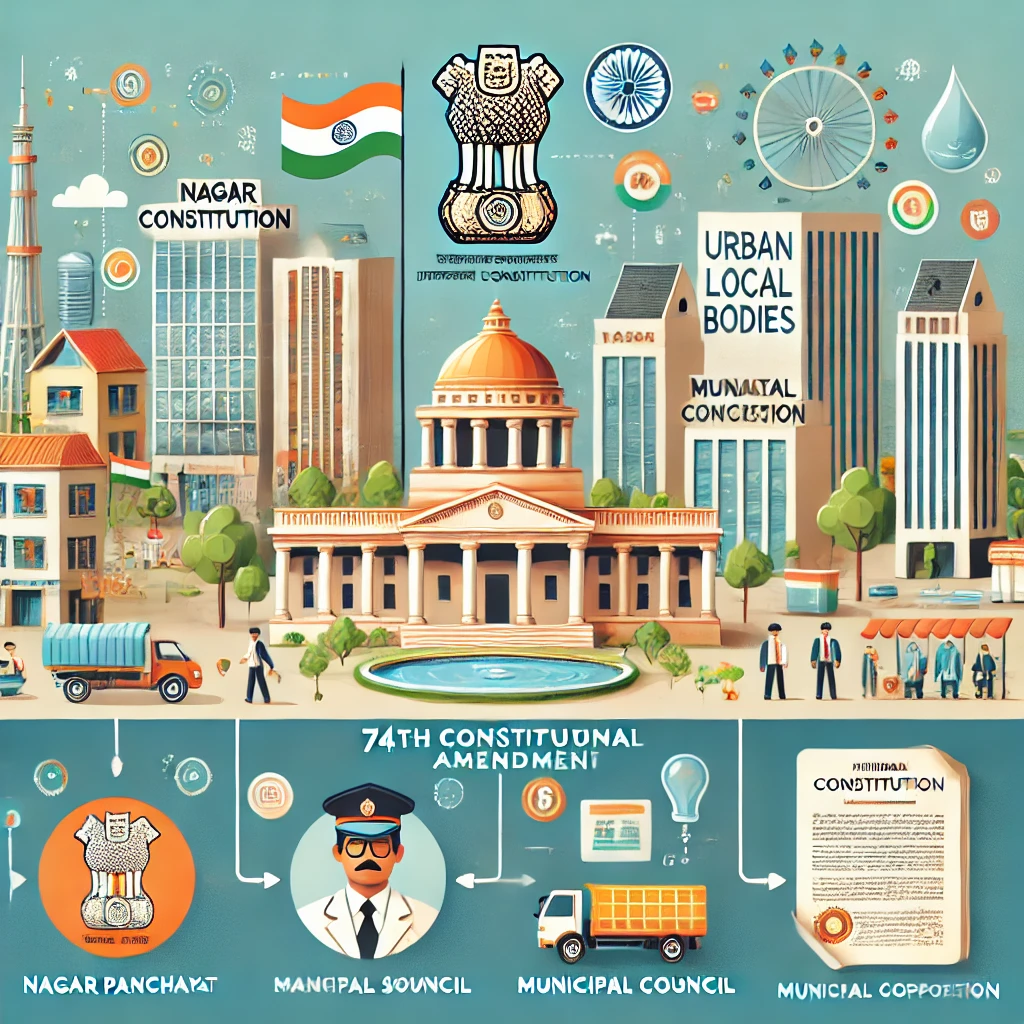Comprehensive Guide to Family Law Under Hindu Law
Family law is an integral part of our legal framework, touching upon the most fundamental aspects of human relationships—marriage, divorce, maintenance, adoption, and inheritance. Hindu law, a subset of personal laws in India, governs family matters for individuals who identify as Hindus, including Buddhists, Jains, and Sikhs, with a distinct set of principles derived from ancient texts, customs, and modern legislation.
This comprehensive blog explores key elements of Hindu family law and its significance, providing valuable insights for students, legal professionals, and anyone preparing for exams like DU LLB, KLEE LLB Entrance, and MH CET LLB 3-Year. Don’t forget to check out Test Series for DU LLB, KLEE LLB Entrance, and other exams. Enhance your preparation further with Chandra Classes Video Courses.
1. Introduction to Hindu Law
Hindu law is one of the oldest legal systems in the world, rooted in the Dharmashastras and Smritis. The modern framework has evolved significantly with the enactment of statutory laws like:
Hindu Marriage Act, 1955
Hindu Succession Act, 1956
Hindu Minority and Guardianship Act, 1956
Hindu Adoptions and Maintenance Act, 1956
Who is a Hindu Under the Law?
The term “Hindu” under the law encompasses:
Followers of Hinduism, Jainism, Buddhism, and Sikhism.
Persons who do not identify with any other religion and are domiciled in India.
2. Marriage Under Hindu Law
Marriage is a sacrament in Hindu law, implying a sacred, lifelong bond between two individuals. The Hindu Marriage Act, 1955 governs marriage-related matters.
Key Features of Hindu Marriage:
Eligibility: The bridegroom must be at least 21 years old, and the bride must be at least 18 years old.
Conditions: Prohibition of bigamy, mental competence, and non-sapinda relationships (within prohibited degrees of relationships).
Ceremonies: Ceremonial rituals like Saptapadi (seven steps) must be performed.
Grounds for Divorce:
Under Section 13 of the Hindu Marriage Act, divorce can be sought on grounds such as:
Adultery
Cruelty
Desertion
Conversion to another religion
Mental disorder
Irretrievable breakdown of marriage (judicial precedents)
Landmark Judgments:
Shiv Shakti v. Sunil Kumar: Addressed irretrievable breakdown as a valid ground.
Sarla Mudgal v. Union of India: Highlighted bigamy and fraudulent conversion.
3. Adoption Under Hindu Law
Adoption is regulated by the Hindu Adoptions and Maintenance Act, 1956, allowing Hindus to adopt children legally.
Key Provisions:
Only Hindus can adopt or be adopted under this law.
Consent of both spouses is necessary in the case of a married individual.
Eligibility of the child: A child must be below 15 years and not already adopted.
Adoption creates a permanent parent-child relationship.
Adoption FAQs:
Q: Can a single woman adopt?
A: Yes, under Section 8.
Q: Is adoption reversible?
A: No, adoption is irrevocable once completed.
4. Maintenance Obligations
The Hindu Adoptions and Maintenance Act, 1956 lays down the maintenance responsibilities of individuals.
Who Can Claim Maintenance?
Wife (during and post-marriage)
Children (minor, unmarried daughters, and dependents)
Aged parents
Judicial Trends:
Kusum Sharma v. Mahinder Kumar: Provided guidelines for determining maintenance amounts.
Savitaben Somabhai Bhatiya v. State of Gujarat: Affirmed that maintenance is a matter of right.
5. Inheritance and Succession
The Hindu Succession Act, 1956, as amended in 2005, ensures gender equality in inheritance.
Key Features of the 2005 Amendment:
Daughters now have equal rights as sons in ancestral property.
The doctrine of survivorship has been abolished.
Widows and mothers are included as Class I heirs.
Important Case Laws:
Vineeta Sharma v. Rakesh Sharma (2020): Reinforced the retrospective applicability of the 2005 amendment.
Danamma @ Suman Surpur v. Amar (2018): Affirmed the daughter’s right as a coparcener.
6. Guardianship of Minors
The Hindu Minority and Guardianship Act, 1956 governs guardianship. It recognizes the welfare of the child as paramount.
Types of Guardianship:
Natural Guardian: Father (or mother in the absence of the father)
Testamentary Guardian: Appointed through a will
Guardian Appointed by Court: For the best interests of the minor
7. Family Law in Practice
Preparing for Exams Like DU LLB, KLEE, and MH CET
If you’re gearing up for competitive law entrance exams, mastering family law is essential. Utilize resources like:
Test Series for DU LLB
KLEE LLB Entrance Test Series
MH CET LLB 3-Year Test Series
Boost Your Preparation:
Leverage video courses and expert guidance through Chandra Classes Video Courses for a deeper understanding of Hindu family law.
8. Conclusion
Hindu family law, while deeply rooted in tradition, has undergone significant transformations to align with modern values. Whether you’re a student, a legal practitioner, or a curious reader, understanding the nuances of Hindu law provides insight into India’s complex socio-legal landscape.
Prepare smartly with targeted resources and stay updated with evolving judicial interpretations.
Why Choose Chandra Classes?
Offline Classes: Experience classroom learning at their state-of-the-art center.
Online Classes: Flexible learning from anywhere via the Chandra Classes App.
Comprehensive Study Material: Tailored for legal studies, ensuring in-depth understanding of concepts.
Experienced Faculty: Learn from seasoned educators with extensive experience in law.![]() Office Address: Opposite Anand Bhawan, Colonelganj, Prayagraj, Uttar Pradesh 211002
Office Address: Opposite Anand Bhawan, Colonelganj, Prayagraj, Uttar Pradesh 211002![]() Helpline Number: 9264915953
Helpline Number: 9264915953
How Chandra Classes Prayagraj Can Help You
Whether you’re preparing for LLB exams or competitive legal exams, Chandra Classes Prayagraj provides a robust learning platform.![]() Join Online Classes: Download the Chandra Classes App for seamless access to live classes, recorded sessions, and test series.
Join Online Classes: Download the Chandra Classes App for seamless access to live classes, recorded sessions, and test series.![]() Join Offline Classes: Attend classes at their conveniently located center:
Join Offline Classes: Attend classes at their conveniently located center:
Address: Opposite Anand Bhawan, Colonelganj, Prayagraj, Uttar Pradesh 211002![]() Helpline Number: 9264915953
Helpline Number: 9264915953
About Chandra Classes Prayagraj
Chandra Classes Prayagraj provides expert coaching for LLB and other law-related competitive exams, combining top-notch faculty and structured study material.
Why Choose Chandra Classes?
Offline Classes: Traditional classroom learning with expert educators.
Online Classes: Flexible access through the Chandra Classes App.
Interactive Resources: Comprehensive notes, mock tests, and personalized mentorship.![]() Office Address: Opposite Anand Bhawan, Colonelganj, Prayagraj, Uttar Pradesh 211002
Office Address: Opposite Anand Bhawan, Colonelganj, Prayagraj, Uttar Pradesh 211002![]() Helpline Number: 9264915953
Helpline Number: 9264915953
How to Reach Chandra Classes Prayagraj
For offline classes, visit the center conveniently located in Prayagraj.
Route Overview:
From 25.4704672, 81.8434903, it’s a 7-minute drive (2.8 km) via University Road.
Directions:
Head north.
Turn right.
Turn right toward Stanley Rd.
Turn left onto Stanley Rd.
Turn right.
Turn left onto Mission Road.
At the roundabout, take the 3rd exit onto Kutchery Rd.
Turn left onto Muir Rd.
Continue straight onto University Road.
Turn right onto Colonelganj Rd/Katra Rd.
Turn left onto NH 30/NH 330.
Arrive at Chandra Classes Prayagraj.
Final Thoughts
The Indian Contract Act, 1872, is a vital part of LLB studies and forms the backbone of contract law. Enhance your learning with professional guidance from Chandra Classes Prayagraj, whether you prefer offline interaction or online convenience through their app.![]() Visit the center at Opposite Anand Bhawan, Prayagraj or download the Chandra Classes App for online resources.
Visit the center at Opposite Anand Bhawan, Prayagraj or download the Chandra Classes App for online resources.![]() Contact Helpline: 9264915953
Contact Helpline: 9264915953
How Chandra Classes Prayagraj Can Help You
Whether you’re preparing for LLB exams or competitive legal exams, Chandra Classes Prayagraj provides a robust learning platform.![]() Join Online Classes: Download the Chandra Classes App for seamless access to live classes, recorded sessions, and test series.
Join Online Classes: Download the Chandra Classes App for seamless access to live classes, recorded sessions, and test series.![]() Join Offline Classes: Attend classes at their conveniently located center:
Join Offline Classes: Attend classes at their conveniently located center:
Address: Opposite Anand Bhawan, Colonelganj, Prayagraj, Uttar Pradesh 211002![]() Helpline Number: 9264915953
Helpline Number: 9264915953
About Chandra Classes Prayagraj
Chandra Classes Prayagraj provides expert coaching for LLB and other law-related competitive exams, combining top-notch faculty and structured study material.
Why Choose Chandra Classes?
Offline Classes: Traditional classroom learning with expert educators.
Online Classes: Flexible access through the Chandra Classes App.
Interactive Resources: Comprehensive notes, mock tests, and personalized mentorship.![]() Office Address: Opposite Anand Bhawan, Colonelganj, Prayagraj, Uttar Pradesh 211002
Office Address: Opposite Anand Bhawan, Colonelganj, Prayagraj, Uttar Pradesh 211002![]() Helpline Number: 9264915953
Helpline Number: 9264915953
How to Reach Chandra Classes Prayagraj
For offline classes, visit the center conveniently located in Prayagraj.
Route Overview:
From 25.4704672, 81.8434903, it’s a 7-minute drive (2.8 km) via University Road.
Directions:
Head north.
Turn right.
Turn right toward Stanley Rd.
Turn left onto Stanley Rd.
Turn right.
Turn left onto Mission Road.
At the roundabout, take the 3rd exit onto Kutchery Rd.
Turn left onto Muir Rd.
Continue straight onto University Road.
Turn right onto Colonelganj Rd/Katra Rd.
Turn left onto NH 30/NH 330.
Arrive at Chandra Classes Prayagraj.
Final Thoughts
The Indian Contract Act, 1872, is a vital part of LLB studies and forms the backbone of contract law. Enhance your learning with professional guidance from Chandra Classes Prayagraj, whether you prefer offline interaction or online convenience through their app.![]() Visit the center at Opposite Anand Bhawan, Prayagraj or download the Chandra Classes App for online resources.
Visit the center at Opposite Anand Bhawan, Prayagraj or download the Chandra Classes App for online resources.![]() Contact Helpline: 9264915953
Contact Helpline: 9264915953
Happy Learning!
Comprehensive Guide to Family Law Under Hindu Law ( CHANDRA CLASSES )



